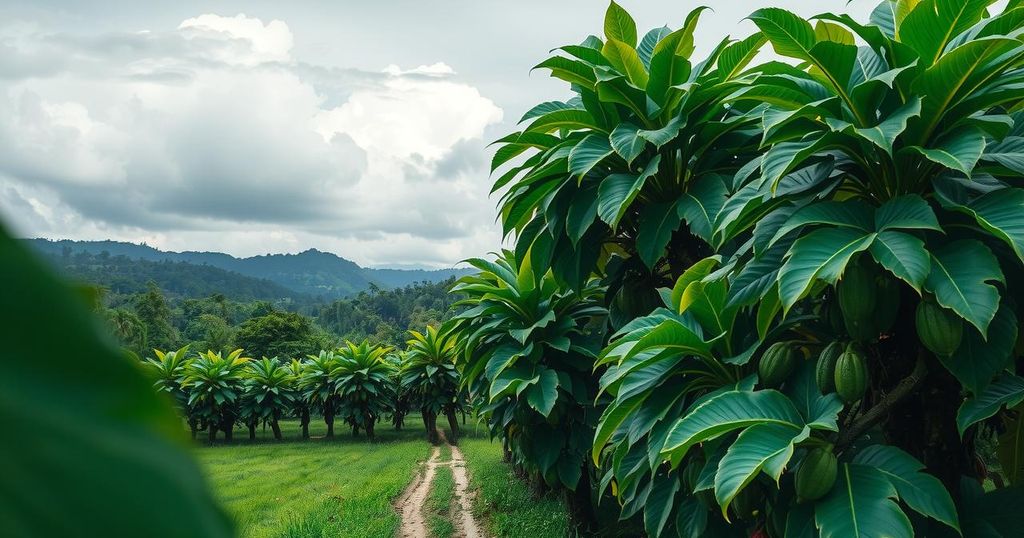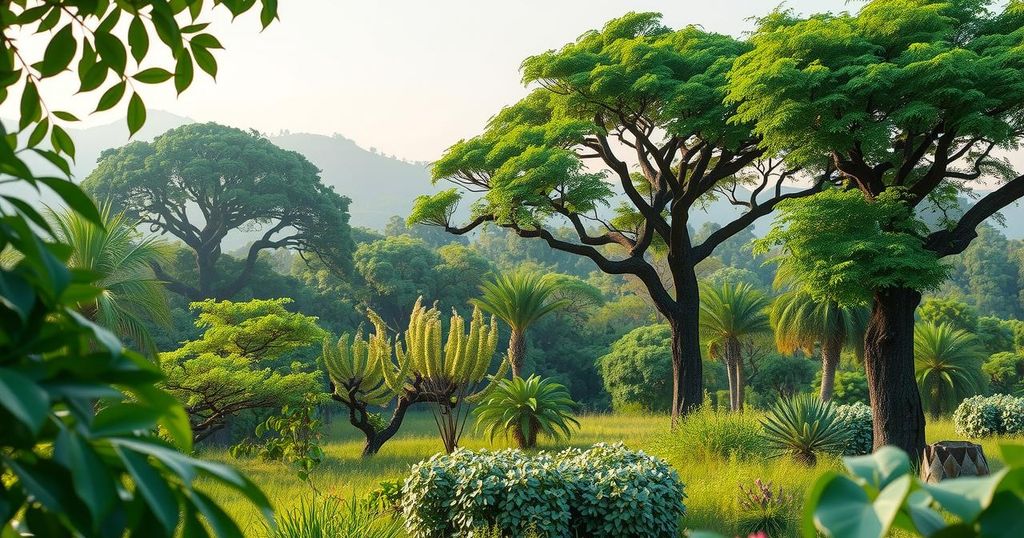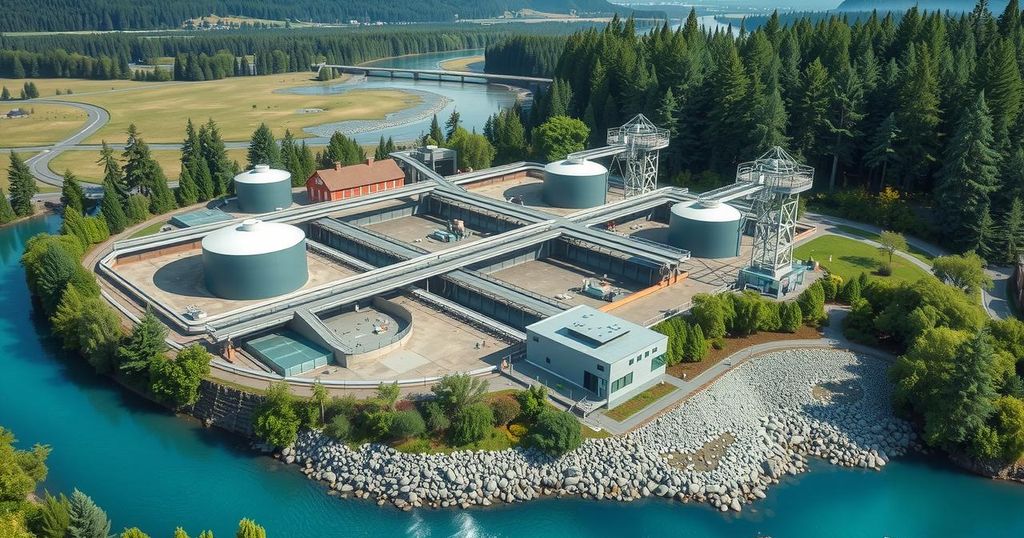Cocoa farmers in Indonesia, like Tari Santoso, are collaborating with businesses to combat climate change’s adverse effects. Challenges include rising cocoa prices and declining interest in cocoa cultivation. Partnerships with companies like Krakakoa provide training and financial support, while initiatives aim to improve farming practices and strengthen community support networks. Despite ongoing difficulties, there is optimism regarding the future of cocoa farming in Indonesia.
In Tanjung Rejo, Indonesia, cocoa farmers, including Tari Santoso, are joining forces with businesses and organizations to address the adverse effects of climate change on cocoa production. Cocoa trees, which require specific climatic conditions, face challenges as rising temperatures and erratic weather patterns threaten yield and increase susceptibility to diseases and pests, leading farmers to consider alternate crops.
The price of cocoa has surged, reaching nearly US$12,000 per ton in 2024 due to dwindling supplies. As Indonesia ranks as the third-largest cocoa producer globally, initiatives involving partnerships with businesses, such as Indonesian chocolate maker Krakakoa, are essential for improving farming techniques and sustaining farmers’ livelihoods.
Santoso reports significant improvements in his cocoa farm after collaborating with Krakakoa since 2016. He has adopted effective agricultural practices, such as regular pruning and integrating diverse crops to foster an ecosystem that supports cocoa production. The partnership has provided invaluable training and a cooperative for low-interest loans, enhancing financial stability for farmers.
Additionally, the Cocoa Sustainability Partnership emphasizes the collaboration between farmers and businesses, allowing farmers to secure larger loans by establishing guarantees through buyer agreements. Cooperative efforts with government agencies and NGOs are also instrumental in developing more resilient cocoa varieties.
Despite the positive advancements, challenges persist in attracting new entrants to cocoa farming. With some farmers opting for more lucrative crops like palm oil, loans remain inaccessible for many small-scale farmers. However, there is optimism that continued collaboration will rejuvenate the cocoa farming sector, making it more appealing once again to current and prospective farmers.
The collaboration between Indonesian cocoa farmers and businesses is proving vital in combating climate change’s impacts on cocoa production, as evidenced by farmers like Tari Santoso. With training, financial support, and innovative agricultural practices, farmers are navigating new challenges in the industry. While challenges remain in attracting new farmers to cocoa cultivation, the ongoing partnerships offer hope for a more sustainable future in cocoa farming. An integrated approach may ultimately revitalize interest in cocoa as a lucrative agricultural endeavor.
Original Source: www.local10.com




